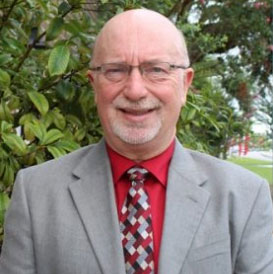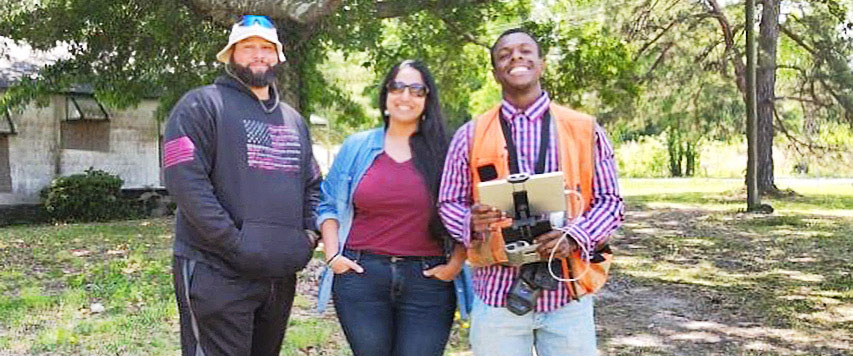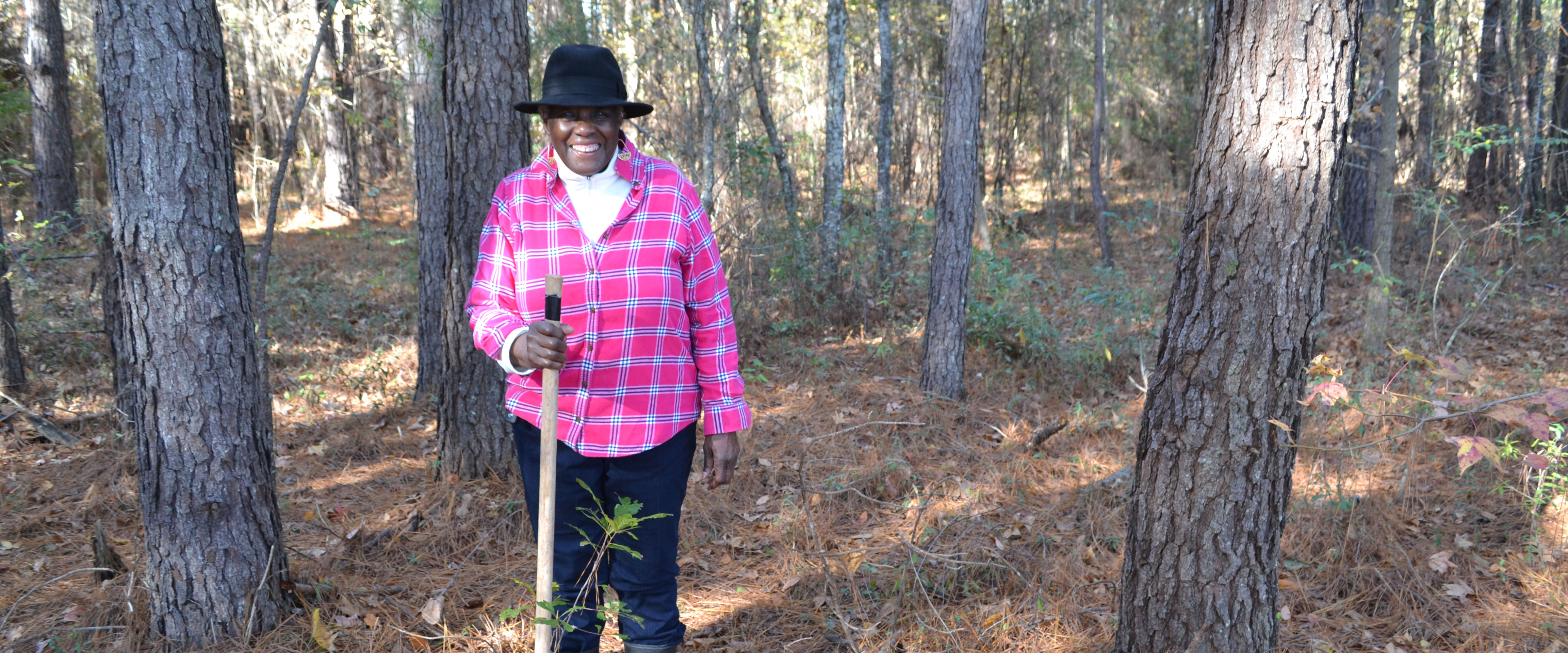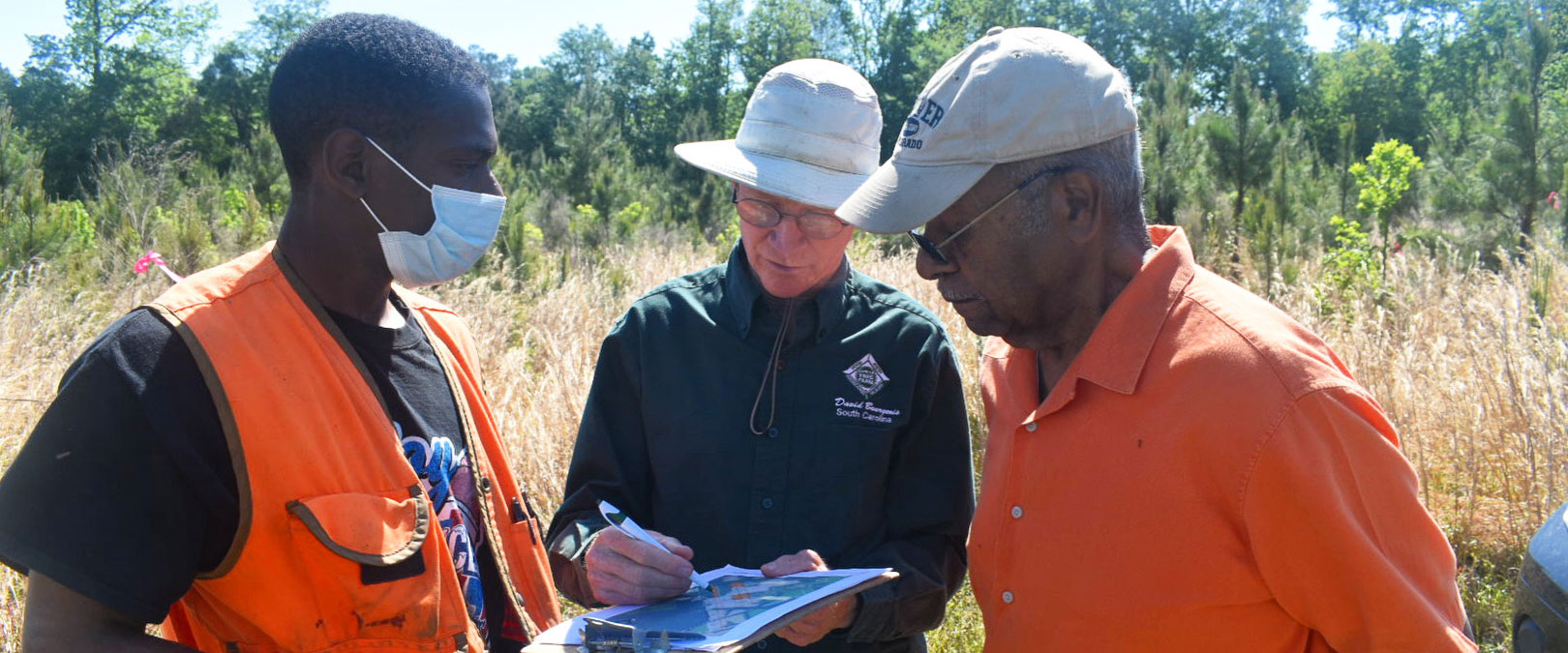
Heirs' Property is the Leading Cause of Black Involuntary Land Loss
This Black History Month we are featuring The Center for Heirs’ Property Preservation located in North Charleston, SC. The U.S. Department of Agriculture has recognized heirs’ property as “the le ading cause of Black involuntary land loss.” We spoke with Heirs’ Property’s Director of Communications, Jeff Winget, to learn more about how the organization serves the Lowcountry, and its plans to continue expanding services statewide.
ading cause of Black involuntary land loss.” We spoke with Heirs’ Property’s Director of Communications, Jeff Winget, to learn more about how the organization serves the Lowcountry, and its plans to continue expanding services statewide.
The Center for Heirs’ Property Preservation is a leading expert in the field of preventing land loss due to title issues, and their model has been replicated outside of South Carolina. They have been essential in helping many Black families protect and keep their land.
All photos provided by the Center for Heirs' Property Preservation
What is an heirs’ property?
Most heirs’ property in the Lowcountry is land that was either purchased by or deeded to African Americans after emancipation. Much of this land has been passed down through the generations without the benefit of a will so that the land is owned in common by all the heirs – sometimes hundreds of descendants – whether they live on the land, help pay taxes, or have never set foot on the land.
But not every case we deal with goes way back to emancipation. In the state of SC, if you’ve not probated a will within the ten years that the state gives you, then you can have an heirs’ property. So quite often the property issue is fairly recent in scope and may have occurred within the last ten years. Heirs’ property is not just an African American issue in the southeast either – it really occurs anywhere there is a large group of underserved landowners.
Why is heirs’ property a problem?
Heirs’ property is an unstable form of ownership at high risk for loss because any heir can sell their percentage of ownership to another who can force a sale of the entire property.
It is fascinating to see the scope of the issue; to quote Lizzy Presser’s article in ProPublica – “Their Family Bought Land One Generation After Slavery. The Reels Brothers Spent Eight Years in Jail for Refusing to Leave It.” – heirs’ property is “the worst problem you’ve never heard of.”
Why are there so many Black landowners suffering from heirs’ property issues in the Lowcountry?
The U.S. Department of Agriculture has recognized heirs’ property as “the leading cause of Black involuntary land loss.” It can trace back to emancipation, but the bigger issue is the trust factor that we deal with quite often. When you have a history of not trusting government, law, and other outside entities because of the history of Black land loss and discriminatory practices, it is difficult to help people without a title.
When we do education and outreach, we try to partner with an organization that has community trust. We will do seminars at churches, community centers, veterans’ organizations where we ride the coattails of trust that already exists.
We have a program called Woodland Community Advocates (WCA) made of people we’ve already helped, who have firsthand experiences of our services and are already in the community we’re trying to reach. They do a 6-course program with us that trains them how to answer questions – almost like evangelists for the community. When people hear from a neighbor or friend who has gotten results with us, that makes people much more open minded to hearing about what we can do to help them. We have almost 90 WCAs here in the Lowcountry servings as outreach liaisons at community events where talk to different people to educate and get them into the program. They are our boots on the street, grassroots advocates who help get the rural people on board.
Are heirs’ property issues specific to the southeast?
No, there’s heirs’ property in Appalachia, there’s heirs’ property out west on tribal lands, and even just last year the Pew Institute published a piece looking at heirs’ properties in urban areas: “How ‘Tangled Titles’ Affect Philadelphia.” A lot of people think heirs’ property is just a rural issue, but it is also an urban one.
What are The Center for Heirs’ Property Preservation’s main areas of expertise, and what services do you offer?
Our three buckets of work include Prevention, Resolution, and Sustainable Land Use.
We started out with the education bucket: telling people about the issue, helping with free wills clinics, and trying to prevent land loss. Then we added our resolution bucket, which is the legal aspect where we fix things and we clear those titles, and over time we realized these two buckets didn’t go far enough.
That’s when we added the utilization bucket, or sustainable land use. We saw that landowners were used to working for the land by paying taxes, and being a landowner was almost a burden to them. So we try to turn that around and have the land work for them. Now we have foresters on staff for our forestry program because if you have land in SC, chances are you have trees on it. If the land is not suitable for forestry, then we have other partners that we can bring in for solar, agriculture uses, etc. to help create that generational wealth, which is really the key to lifting people out of poverty.
At the foundation of what we do is helping people who want to keep their land create generational wealth. We help them make a plan for their family and future generations. When we clear the title, then landowners have access to government programs that can help them with agriculture or forestry programs.
Do you do any work in the Midlands or Upstate?
We are based in North Charleston, but we have a satellite office in Orangeburg and are weeks away from opening one in Florence. And next year we will have one in Columbia. We are continually expanding our footprint and opened up the Pee Dee area a couple years ago. We continue to add 2-3 counties a year, and we hope to cover the whole state in the future.
How does your work help other regions of the country?
We have a replication model and, even though we serve SC, our expertise and the unique way we deliver direct legal services to our clients has been replicated elsewhere. We’re seen as the expert, and we took our model to the state of Mississippi and partnered with Mississippi Center for Justice (MCJ) with some funding from the World Wildlife Fund. The MCJ is taking what we’ve learned over the last 18 years and applying it to the state of MS. We have other people contacting us from other states to potentially do the same thing in other places.
What happens to heirs’ property when natural disasters hit?
We field lots of calls from the press about climate change, and people want to talk about that because it really does impact the poor and underserved more often than others. Sometimes those flooding and natural disaster issues repeat, unfortunately, at a greater rate for the people we work with than average folks.
One of the things we’ve helped with came to fruition last year when FEMA changed the rules. Before, when heirs’ properties couldn’t prove their title, they didn’t qualify for federal funds in the face of disaster. The rule change will help underserved property owners in the future because it keeps them from entering that vicious cycle where if they can’t fix the roof, mold problem, etc. then the next time it rains or floods it just creates this vicious cycle that keeps repeating itself.
Testimonials
Mishawn Holt is a veteran who returned to his family land in the Pee Dee region from Baltimore, Maryland. He wanted to take a more active role in his family’s land, particularly since the land was underutilized and they had previously had a negative experience in being consulted as to what to do with their land. Thanks to a referral from Darlington residents James and Mariscia Cooper, who were already working with the Center for Heirs’ Property Preservation™, Mr. Holt decided to meet with representatives from the Center.

On April 28th, Center Forester Kenneth Dunn along with Center Staff Attorney Aashini Shrivastav traveled to Darlington for the initial meeting. Kenneth did an aerial site survey thanks to drone technology of Mr. Holt’s land. Now thanks to the Center, he’s being given continued technical assistance on how better to utilize his more than 30 acres of family land. He is now part of the Center’s Sustainable Forestry and African American Land Retention program and has a plan in place to help in managing and harvesting his timber, making his family land work for him instead of him working for his land. The goal is to help create wealth for his family and future generations.
The Center and the SFLR program helps people like Lille McGill. Like the trees that surround her, Lillie McGill stands proud on her family land. She has been involved with the Center’s Sustainable Forestry Program since 2014. She lives on her 25-acre property in the town of Kingstree. She manages her family land for forestry. Her husband of 51 years, Norman McGill, has passed away. When Mrs. McGill was younger, she used to walk to school with her future husband, never dreaming that they would one day marry. She and her husband bought the land her husband’s family once sharecropped. Recently her daughter purchased the home where her grandparents once lived. It’s now on the National Register of Historic Places and she hopes to restore it and turn it into a bed and breakfast. Mrs. McGill is working with a private forest consulting group to get her timber cut and has a small wetland on her property that she would like to conserve.

“Her brother told her that the wetland has quicksand on it,” said Steve Patterson, Director of Forestry for the Center. “I think Mrs. McGill is a very special lady, however, she is also very determined. She did not seem too worried about that quicksand when she put on her rubber boots and grabbed her bush axe to lead us through her property on a site visit.”
Strong and determined is how Steve describes her and Mrs. McGill just laughs, “I’m not exactly sure about that,” she said. “The Center has helped me over the years. From making sure my affairs are in order by completing my Will, to helping me with forestry and conservation in making my land work for me.”
Another participant with the Center and the SFLR program is landowner Anthony Williams. Center Foresters David Bourgeois and Kenneth Dunn traveled to Elloree, South Carolina to visit him on his nearly 65 acres of land in Orangeburg County, 42 acres of which have been recently planted in pine trees. David and Kenneth were there to monitor the success of the recent planting and to check on the health of the trees.
Mr. Williams reflected on meeting up with David shortly after learning about the Center and being approved for the SFLR program. Dave gave me all the guidance I needed.” He smiled as he went on about getting his trees planted earlier than other people in the area. “David and I and my wife were actually putting out the marker flags while they were planting the trees right behind us.”

“Mr. Williams land is a little more challenging than some,” said Center Forester David Bourgeois. “Instead of all his land being in one simple, big plot, it’s scattered in smaller strips. This makes it a little more difficult to service, but we find ways to make it work. We know how important his land is to him and his family.”
“I was born and raised on this land,” said Mr. Williams, standing just steps away from where his childhood home once stood. “It is a different feeling though for my kids. They just aren’t as attached to the land as I am. My hope in planting these trees is that it might help them fall in love with the land.” Sustainable forestry is helping Mr. Williams generate wealth for the future of his family, and he is using other methods as well to help his children and grandchildren bond with the land. “I took my grandkids out and had them plant two trees on the land. I will keep bringing them down here as long as I’m alive and show them those two trees they planted.” Mr. Williams trees, as well as his family, together are growing strong.
Elizabeth Swails is the Communications Coordinator for Upstate Forever. You can contact her at eswails@upstateforever.org.
